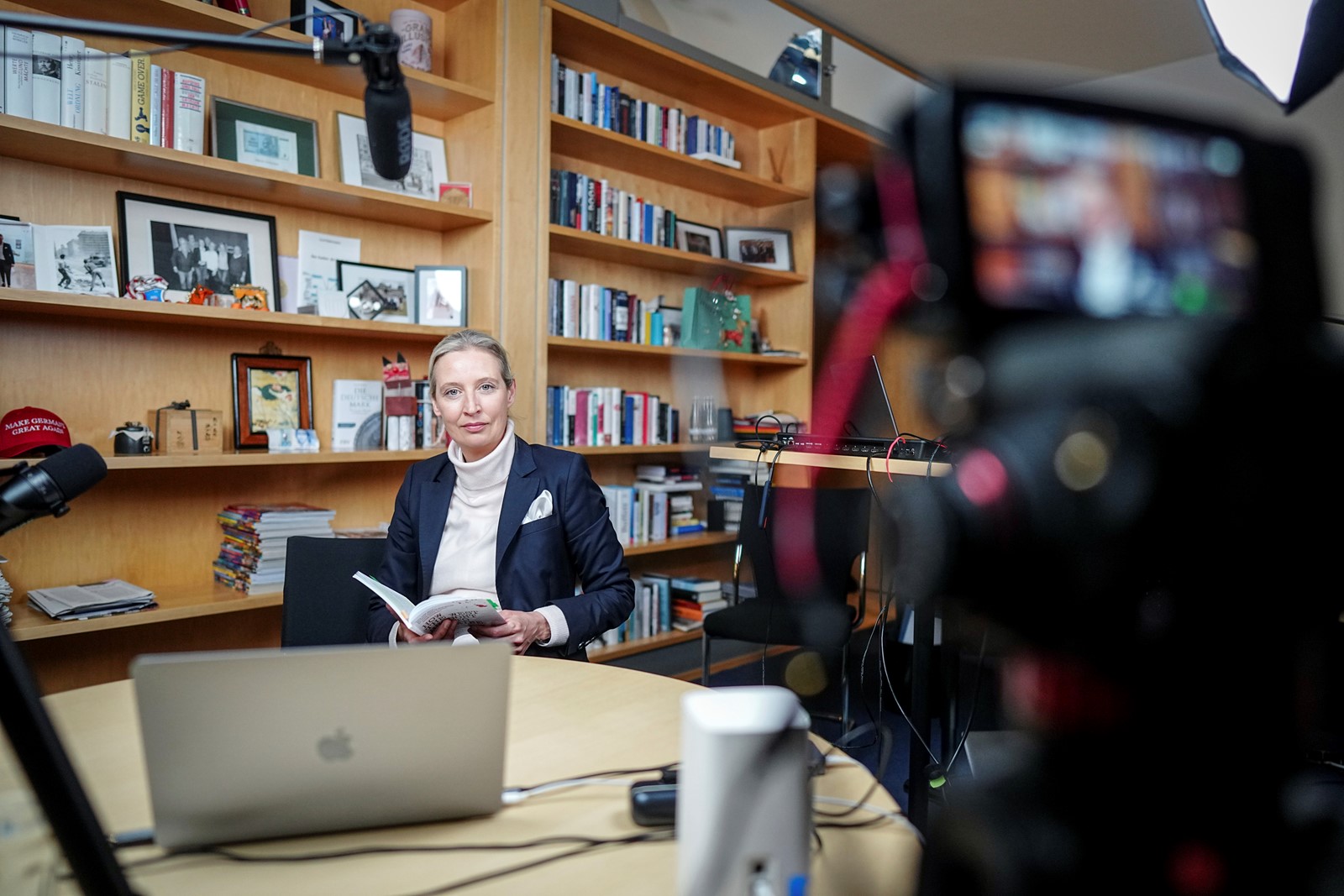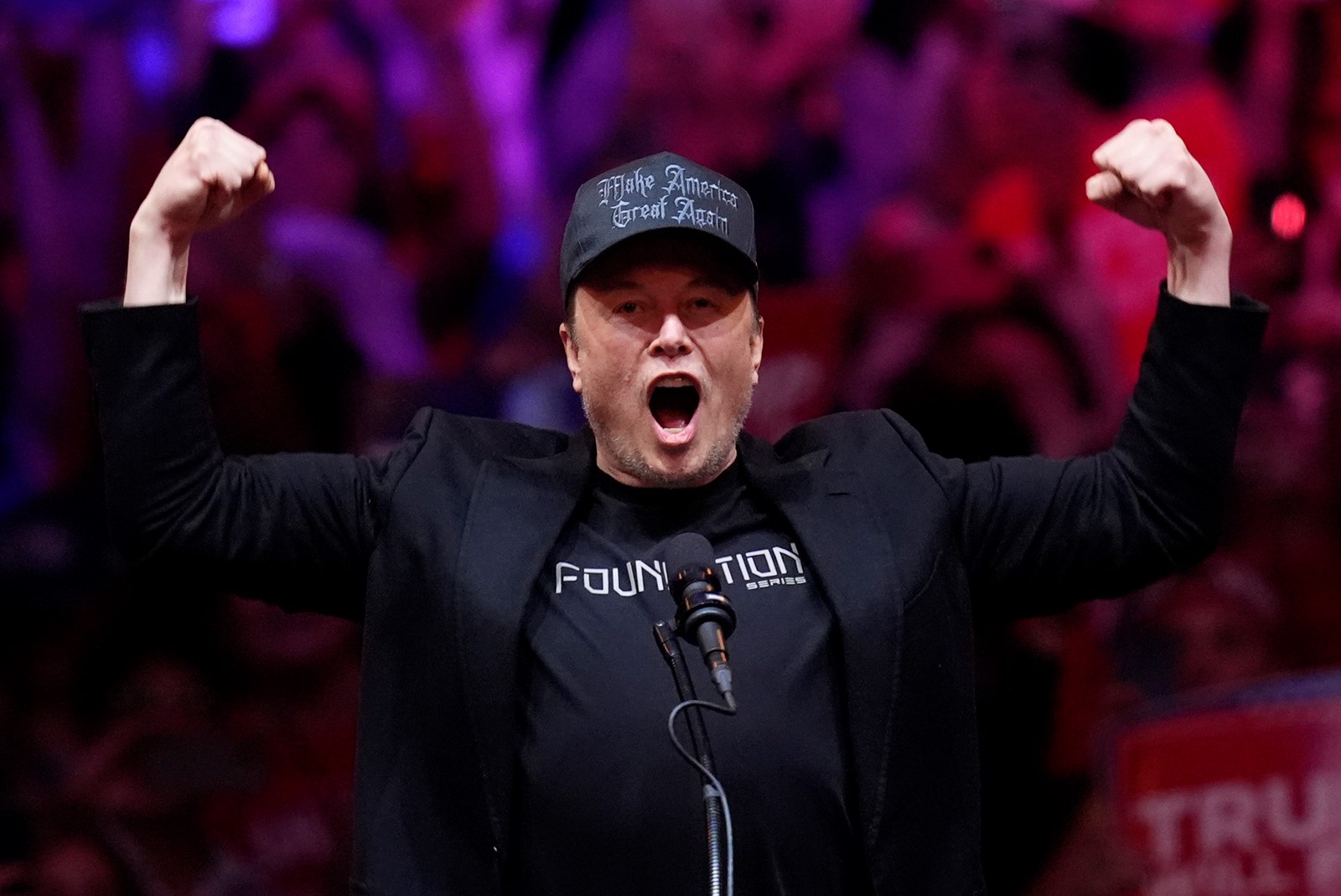

BERLIN>> Elon Musk is not just dabbling in German politics. He is attempting to break a political blockade that has kept the nation’s most prominent far-right party out of government even as it has gained strength with voters.
On Thursday, Musk hosted a live, English-language interview with Alice Weidel. She is the chancellor candidate for that far-right party, the Alternative for Germany, known as the AfD, in the country’s snap election scheduled for Feb. 23. Even before the event, which was held on X, the social media platform that Musk owns, it had raised alarms and threats of legal consequences among Germany’s political class.
That was, in large part, because Musk is offering the AfD a level of publicity and legitimacy that it has long been denied in German public life.
He made that push explicit in the interview, repeating his warning to Germans that only the AfD can bring about the change their country needs.
Voting for the AfD “is simply the sensible move,” Musk said about a half-hour into a conversation that had largely lingered on energy and immigration policy. “And I think Alice Weidel is a very reasonable person, and hopefully people can tell just from this conversation. Nothing outrageous is being proposed, just common sense.”
The AfD has risen to the second position in German national polls, backed by about a fifth of the electorate. It has gained support with an unwavering anti-establishment campaign, which rails against the millions of migrants and refugees who have entered the country over the past decade from the Middle East and Ukraine.
Parties with similar immigration messages elsewhere in Europe, such as the Brothers of Italy and Austria’s Freedom Party, have risen to federal power. But in Germany, still haunted by its Nazi past, no other party will work with the AfD. Its candidates complain they receive far less airtime than other candidates on the nation’s political talk shows.
At the same time, the AfD has made forays into language and actions German leaders deem extreme. The party has been forced to expel members for using racist and antisemitic language. One of its leaders has been penalized repeatedly by German courts for repeating banned Nazi slogans.
The party is under observation by domestic intelligence. Three of its state chapters as well as its entire youth wing are classified as confirmed right-extremist, a designation that intelligence services make after extensive observation. More than 100 employees working for AfD members of parliament are also confirmed right extremists, according to an investigation by a public broadcaster.
In a 2016 speech, with the AfD gaining steam before federal elections, former Chancellor Angela Merkel urged all German parties to unite against the AfD. It was, she said, not just a problem for her own conservative party but “a challenge for all of us gathered in this house.”
The anti-AfD collective has not broken since. Not after the party climbed in the polls and won victories in major state elections last year and not after it tried to put a more moderate face forward as its chancellor candidate: Weidel, a former investment banker who lives with her Sri Lankan same-sex partner and their children in Switzerland.
Enter Musk, who controls a powerful media platform that is increasingly populated with right-wing influencers. He has become a close confidant of President-elect Donald Trump and in online posts has begun promoting far-right candidates and parties across Europe.
In December, Musk reposted a video from Naomi Seibt, 24, a German conservative social media star who has gained a large following on X and on YouTube through her harsh criticisms of climate scientists and efforts to combat global warming. She is also close with the AfD and appears to have helped sway Musk to support the party.
“Only the AfD can save Germany,” Musk wrote in his post, which included one of her videos.
Weidel welcomed the support. “You are perfectly right, @elonmusk!” she wrote in response.
Musk has since written an opinion piece in the German newspaper Die Welt expounding on his support for the party, which he called the “last spark of hope” for Germany. In it, he cast the AfD not as extreme but as a reasonable alternative to a calcified political establishment.
“The portrayal of the AfD as far-right is clearly wrong considering that Alice Weidel, the leader of the party, has a same-sex partner from Sri Lanka! Does that sound like Hitler to you? Come on!” he wrote.
Musk and many of his X users are fascinated with European right-wing political parties such as the AfD. But in many ways, the party’s positions diverge from Musk’s personal and business views — and his role as an adviser to Trump.
The AfD famously has fought back against the construction of a factory in Germany for Tesla, the electric car company also run by Musk. In an interview with The American Conservative this week, Weidel praised Trump, but she suggested that Germans have become “slaves” to the United States, including aiding America in wars over the past 30 years.
In their X “Spaces” conversation Thursday, Musk mentioned the factory construction but not the AfD opposition.
Instead, he and Weidel discussed it as an example of Germany’s bureaucratic permitting process, which Musk said resulted in Tesla needing to obtain a 25,000-page permit that had to be printed out and stamped on every page.


 PREVIOUS ARTICLE
PREVIOUS ARTICLE
